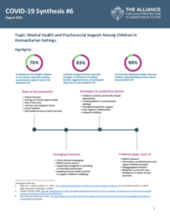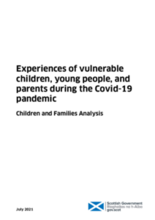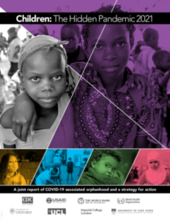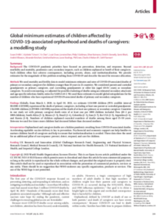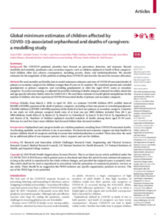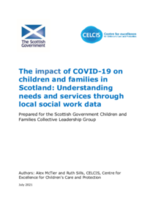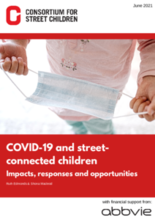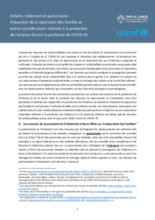This section includes resources on the response to the COVID-19 pandemic as it relates to child protection and children's care.
News on COVID-19 and Children's Care
Webinars and Events on COVID-19 Response
Displaying 81 - 90 of 756
The purpose of this evidence synthesis is to summarize what is already known about the impacts of the pandemic on children’s mental health risks, specifically in humanitarian settings with the aim of providing an overview of evidence to date. This synthesis captures the toll that COVID-19 and public health measures to reduce its transmission have taken on children’s mental health worldwide due to stressors from social isolation, family hardships, school closures, service interruptions, and economic crises. Evidence relevant to mental health and psychosocial support generally and in conflict-affected settings were included. Together, 52 academic articles and resources and 21 news articles from April 2020 to July 2021 were compiled for this report.
This report presents findings from qualitative research conducted with a range of children, young people and parents in vulnerable or seldom heard groups, carried out to explore their lived experiences during and throughout the COVID-19 pandemic.
This report presents statistical data from 192 countries on children experiencing COVID-19-associated orphanhood and death of grandparent caregivers, a description of the trends in these data, a real-time COVID-19 Calculator for Death of Parents and Caregivers, and strategies and principles for integrating care for children bereaved by the virus into every nation’s COVID-19 response planning.
Because most COVID-19 deaths occur among adults, not children, attention has been focused, understandably, on adults. However, a tragic consequence of high numbers of adult deaths is that high numbers of children might lose their parents and caregivers to COVID-19, as occurred during the HIV/AIDS, Ebola, and 1918 influenza epidemics. The goal of this report is to shine a bright light on this urgent and overlooked consequence that is harmful for children.
This study used mortality and fertility data to model minimum estimates and rates of COVID-19-associated deaths of primary or secondary caregivers for children younger than 18 years in 21 countries.
These presentations from UNICEF and Alternative Care Thailand were delivered during the July 9, 2021, workshop of the Care Measurement Task Force of the Transforming Children's Care Global Collaborative Platform. The focus of the workshop was on care measurement initiatives in Eastern and Southern Africa and Thailand.
This report was prepared by CELCIS in collaboration with local authorities and stakeholders in Scotland to inform the Scottish Government Children and Families Collective Leadership Group's consideration of the impact of COVID-19 on children and families.
This overview considers the effect of the pandemic on street-connected children, meaning those who live or work on or have another strong connection to the street, and those who work with them. It draws on data gathered from members of the Consortium for Street Children’s network of over 180 community organisations, national and international non-governmental organisations, researchers, advocates and on-the-ground practitioners working in 135 countries.
This two-part launch event reveals research, insights, and a new, 7-point plan for how to achieve equality in care work, launched in this year’s State of the World’s Fathers 2021 report.
Le présent document fournit des orientations provisoires aux acteurs des secteurs de la protection de l’enfance et de la santé, dans le contexte des mesures de quarantaine et d’isolement, pour leur permettre d’atténuer les risques liés à la protection de l’enfance, de réduire au minimum la séparation des familles et de favoriser l’unité des familles et la cohésion sociale.

